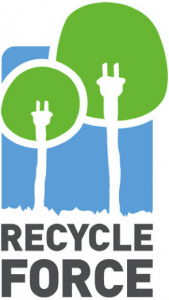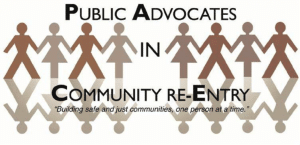Recycle Force
Gregg Keesling, president
RecycleForce
1125 E Brookside Ave.
Indianapolis, IN 46202
www.recycleforce.org
RecycleForce focuses on transitional jobs, employability skills training and supportive services, and last year employed 338 ex-offenders full time.
Since its beginning in 2003, it has helped over 1,000 individuals return to home communities.
Last year, the nonprofit recycled more than 13 million pounds of material, keeping them out of Indiana landfills and producing $3.3 million in sales and generated revenues.
The nonprofit on the city’s Near Eastside, not only provides employees a steady paycheck, but ex-felons also receive mentoring and counseling. A flexible work schedule allows them to meet with their parole or probation agents.
In 2013, RecycleForce developed a proposal called Work Court to help stem recidivism. Many ex-offenders return to prison not having committed new offenses, but for violating their paroles or probations. Their offenses called — Technical Rule Violations (TRV) — might be for failing a drug test, missing an appointment with a parole or probation officer or failing to pay overdue court-related fees and charges.
In its pilot program, Work Court, which included 120 days of work/training and wrap-around services, had court referrals for 44 participants.
This year a Kellogg grant will help them work with families.
“We have got to realize that there’s going to be crime, but what we’re doing is creating more crime, and it’s breaking apart families and destroying our communities in a big way and destroying families and these bonds that when people come it it’s hard.
“We are in the early stages of this grant. We have got to rebuild the families.”
Horizon House
Teresa Wessel, executive director
Horizon House
1033 East Washington Street
Indianapolis, IN 46202
www.horizonhouse.cc
In 1987, the Homeless Network in Indianapolis together with city partners identified the top need for the homeless – a daytime multi-service agency to coordinate services around the city. The first day center opened in 1988 through the cooperative efforts of Shepherd Community, Inc. and the Salvation Army.
In 1994, the board of directors voted to secularize the agency’s identity in order to broaden its base of support. Shifting to independent management, the center severed its relationship with the Salvation Army and created a tie to United Way of Central Indiana. The name was changed to Horizon House.
Horizon House has had an average of over 52,000 visits in the past two years. Its approach is holistic and focuses on helping clients permanently end their homeless situations, according to Executive Director Teresa Wessel.
The dayroom at this Near-Downtown facility averages 160 people a day and initially offers basic services. Without daytime center, it is difficult to access to other services. The facility has a health center, not just a drop-in clinic, with access to medical and mental health services run by Eskenazi Health.
There are other services, too.
“While they’re here they can access other services. Lawyers are on site once a week, online casino as is probation. There are about six different parole officers that come through and schedule meetings with ex-offenders. The idea is we want to provide those services under one roof, so transportation isn’t a barrier,” said Wessel.
“I love the model that we have here. It’s transformative for individuals,” she said.
Public Advocates in Community Re-Entry
Rhiannon Edwards, executive director
Public Advocates in Community Re-Entry, PACE, Inc.
2855 North Keystone Avenue, Suite 110
Indianapolis, IN 46218
www.pace-oar.org (site under construction)
PACE, Inc. has been a United Way organization since 1967. At its inception, volunteers were ministering inside prisons.
“Our mission has remained the same, but our focus is not so much about what’s happening behind the walls because you cannot change that. That’s a different world. We partner with those organizations to make it better for them to get out,” said Rhiannon Edwards, executive director, whose interest in the criminal justice system began in high school.
The agency provides one-on-one life skills and develops personalized transition plans that identify potential barriers to success (substance use, lack of transportation, housing, identification, clothing) and ways to overcome them. PACE also offers substantial pre-employment programming, including skills assessments and job-readiness and retention workshops.
PACE often sees clients return for things like using a computer to pull up a resume or needing help because they’ve lost their housing.
Edwards says these ex-felons have spent all their life being pretty unstable. “So to think that that’s it, they’re good, is really not the case. There’s going to be some bumps in the road. They come back and say, ‘OK, now what do I do with this.’”
PACE partners with organizations such as Dress for Success, Second Helpings and the Damien Center, and are selective about which clients they refer.
“Our people feel very intimidated going other places and are intimidated when they go into a room and not everyone has a felony. It really lowers their self-esteem,” said Edwards.
One new project PACE is involved in is a four-year brain injury federal project with Rehab Hospital of Indiana and Department of Correction. The study is federally supported and is studying brain injuries and how resource-facilitation services can have an impact. While still in the data collection phase, the study has found that many got brain injuries before prison.
“So does that mean that the brain injury led them to commit the crime, and if we give them these services, is that going to prevent future crimes? That’s what we’re looking at,” Edwards said.




